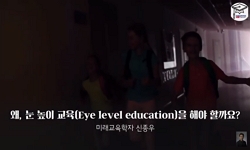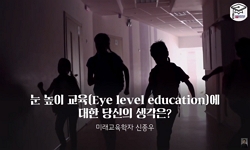인문학의 위기는 이제 인문학 관련 학문들의 축소나 폐지에 머물지 않고 우리 사회 전반의 인문학적 가치의 상실로 심화되고 있다. ‘세월호’ 사건으로 확인할 수 있는 것은 우리 사회가 ...
http://chineseinput.net/에서 pinyin(병음)방식으로 중국어를 변환할 수 있습니다.
변환된 중국어를 복사하여 사용하시면 됩니다.
- 中文 을 입력하시려면 zhongwen을 입력하시고 space를누르시면됩니다.
- 北京 을 입력하시려면 beijing을 입력하시고 space를 누르시면 됩니다.
https://www.riss.kr/link?id=A101718531
- 저자
- 발행기관
- 학술지명
- 권호사항
-
발행연도
2015
-
작성언어
Korean
- 주제어
-
등재정보
KCI등재
-
자료형태
학술저널
- 발행기관 URL
-
수록면
517-540(24쪽)
-
KCI 피인용횟수
6
- 제공처
-
0
상세조회 -
0
다운로드
부가정보
국문 초록 (Abstract)
사고력을 길러주는 철학교육이 어린 시절부터 가능하다는 주장이 1960년대 후반, 미국의 철학자 리프만(M. Lipman)에 의해 주장되었다. 리프만의 ‘어린이를 위한 철학(philosophy for children)’은 비판적 사고력, 창의적 사고력, 배려적 사고력을 중심으로 유치원생부터 고등학생까지 단계별로 프로그램화되어 현재 40개 언어로 번역돼 전 세계에 널리 확산되고 있다. 그러나 리프만의 교재들이 사고력 교육에 치중하고 어린이의 사고 유형을 제한한다는 문제가 제기되면서 매튜스(G. B. Matthews), 마르텐스(E. Martens) 등에 의해 정형화된 교재 대신 어린이가 던지는 순수한 질문으로부터 대화로 풀어나가는 ‘어린이와 함께 하는 철학(philosophy with children)’을 제안하였다. 논자는 이 두 흐름이 방법에 있어서 다르지만 서로 배타적이지 않다는 마르텐스의 입장을 수용하고, 나아가 어린이 철학교육이 학생의 수준과 관심, 환경에 맞게 개발되고 연구되어야 한다는 취지 하에 한국적 상황에 맞는 어린이 철학수업 개요를 제시한다. 본고는 어린이 철학교육에 한정하여 논의를 전개했지만 인문학적 가치를 탐색하고 인문학을 활성화하기 위해 연령과 상관없이 ‘철학함’으로서 철학교육이 필요하다는 주장을 함축한다. 철학함으로서 철학교육은 궁극적으로 인문학적 가치, 인간의 존재 의미와 인간다움을 지향하는 점에서 인문학 교육이기 때문이다.
인문학의 위기는 이제 인문학 관련 학문들의 축소나 폐지에 머물지 않고 우리 사회 전반의 인문학적 가치의 상실로 심화되고 있다. ‘세월호’ 사건으로 확인할 수 있는 것은 우리 사회가 인간으로서 갖추어야 할 최소한의 윤리의식마저 상실하고 물질적 가치를 인간 생명의 가치보다 우선시 한다는 것이다. 이러한 상황에서 인문학적 가치를 회복하는 것은 생명이 달린 문제이며 삶의 질과 직접적으로 연결된 문제이다. 논자는 인간 존재의 의미와 인간다움을 탐색하는 인문학적 가치를 위해 철학교육이 필요하다는 것을 주장한다. 본 논문에서 제안하는 철학교육은 전통 철학자들의 지식 체계를 전달하는 것이 아니라 ‘철학함’으로서의 철학이다. 이는 자신은 아무 것도 모른다고 하면서 끊임없이 질문하고 탐구하는 소크라테스의 태도에 가깝다. 삶 속에서 누구나 직면하는 현상들과 문제들에 대해 끊임없이 질문하고 그에 대해 깊이 생각하는 철학함(doing philosophy), 생각하는 힘을 길러주는 철학교육이 인문학적 가치를 탐색하는 매우 효과적인 방법이 될 것이다.
사고력을 길러주는 철학교육이 어린 시절부터 가능하다는 주장이 1960년대 후반, 미국의 철학자 리프만(M. Lipman)에 의해 주장되었다. 리프만의 ‘어린이를 위한 철학(philosophy for children)’은 비판적 사고력, 창의적 사고력, 배려적 사고력을 중심으로 유치원생부터 고등학생까지 단계별로 프로그램화되어 현재 40개 언어로 번역돼 전 세계에 널리 확산되고 있다. 그러나 리프만의 교재들이 사고력 교육에 치중하고 어린이의 사고 유형을 제한한다는 문제가 제기되면서 매튜스(G. B. Matthews), 마르텐스(E. Martens) 등에 의해 정형화된 교재 대신 어린이가 던지는 순수한 질문으로부터 대화로 풀어나가는 ‘어린이와 함께 하는 철학(philosophy with children)’을 제안하였다. 논자는 이 두 흐름이 방법에 있어서 다르지만 서로 배타적이지 않다는 마르텐스의 입장을 수용하고, 나아가 어린이 철학교육이 학생의 수준과 관심, 환경에 맞게 개발되고 연구되어야 한다는 취지 하에 한국적 상황에 맞는 어린이 철학수업 개요를 제시한다. 본고는 어린이 철학교육에 한정하여 논의를 전개했지만 인문학적 가치를 탐색하고 인문학을 활성화하기 위해 연령과 상관없이 ‘철학함’으로서 철학교육이 필요하다는 주장을 함축한다. 철학함으로서 철학교육은 궁극적으로 인문학적 가치, 인간의 존재 의미와 인간다움을 지향하는 점에서 인문학 교육이기 때문이다.
다국어 초록 (Multilingual Abstract)
In the late 1960s, American philosopher Matthew Lipman asserted that philosophy education can begin at an early age as a means to develop thinking skills. Lipman’s “philosophy for children” focused on critical, caring, and creative thinking, and was developed as a step-by-step program with stages ranging from preschool to high school. This system and curriculum, developed by Lipman and Ann Margaret Sharp at their own Institute for the Advancement of Philosophy for Children (IAPC), has since been translated into no less than 40 languages and have spread across the world. Nevertheless, critics have asserted that Lipman’s curriculum focuses excessively on thinking skills at the cost of potentially narrowing the patterns of thinking that may develop within a child. In line with this criticism, the likes of G.B. Matthews and E. Martens have proposed a “philosophy with children,” where dialogue becomes the vehicle (as opposed to standardized curriculum) by which the innocent questions of a child would be addressed. The author of the current paper argues that these two approaches are not necessarily at odds with each other. The author consequently presents an outline for childhood philosophy education customized to the Korean context, developed as result of research and development based upon the target students’ level of understanding, interests, and environment. Although the current paper limits its arguments to the field of childhood philosophy education, the wider argument implied is that philosophy education based upon ‘doing philophy’ is necessary regardless of age when looking at the larger picture of finding humanistic values in our society and invigorating study of the humanities. ‘Doing philosophy’ itself is, at its core, humanities education due to its ultimate goals of understanding humanistic values, the meaning of life, and the nature of humanism.
The oft-mentioned crisis in the education of humanities is no longer just a crisis of select university departments being reduced or closed down but one with much dire consequences in leading to the loss of humanistic values in our society as a whole....
The oft-mentioned crisis in the education of humanities is no longer just a crisis of select university departments being reduced or closed down but one with much dire consequences in leading to the loss of humanistic values in our society as a whole. The Sewol-ho shipping tragedy of 2014 can be seen as a culmination of how even the minimum sense of moral duty as a member of society has given way to material values taking precedence over human lives. Within such a predicament, the recovery of humanistic values for our society has become a mission that will directly save lives in addition to affecting the quality of our lives. Amidst this background, the author of the current paper asserts the education of philosophy as an essential element that would lead to a search for the meaning of human existence as well as what it means to be human. However, the philosophy education mentioned here should not be understood as the mere passing of knowledge systems as developed by traditional philosophers but a “doing philosophy,” which is much closer to the Socratic approach of perpetually researching and questioning for answers from a state of ignorance. The “doing philosophy” mentioned here, which constantly questions and deeply contemplates the common phenomena among members of society, is an effective method by which philosophy education will lead to the finding and understanding of humanistic values.
In the late 1960s, American philosopher Matthew Lipman asserted that philosophy education can begin at an early age as a means to develop thinking skills. Lipman’s “philosophy for children” focused on critical, caring, and creative thinking, and was developed as a step-by-step program with stages ranging from preschool to high school. This system and curriculum, developed by Lipman and Ann Margaret Sharp at their own Institute for the Advancement of Philosophy for Children (IAPC), has since been translated into no less than 40 languages and have spread across the world. Nevertheless, critics have asserted that Lipman’s curriculum focuses excessively on thinking skills at the cost of potentially narrowing the patterns of thinking that may develop within a child. In line with this criticism, the likes of G.B. Matthews and E. Martens have proposed a “philosophy with children,” where dialogue becomes the vehicle (as opposed to standardized curriculum) by which the innocent questions of a child would be addressed. The author of the current paper argues that these two approaches are not necessarily at odds with each other. The author consequently presents an outline for childhood philosophy education customized to the Korean context, developed as result of research and development based upon the target students’ level of understanding, interests, and environment. Although the current paper limits its arguments to the field of childhood philosophy education, the wider argument implied is that philosophy education based upon ‘doing philophy’ is necessary regardless of age when looking at the larger picture of finding humanistic values in our society and invigorating study of the humanities. ‘Doing philosophy’ itself is, at its core, humanities education due to its ultimate goals of understanding humanistic values, the meaning of life, and the nature of humanism.
목차 (Table of Contents)
- 국문초록
- 1. 들어가는 말: 인문학적 가치가 상실된 사회
- 2. ‘철학함’으로서의 철학교육
- 3. 어린이 철학교육과 인문학
- 참고문헌
- 국문초록
- 1. 들어가는 말: 인문학적 가치가 상실된 사회
- 2. ‘철학함’으로서의 철학교육
- 3. 어린이 철학교육과 인문학
- 참고문헌
- Abstract
참고문헌 (Reference)
1 강기수, "한국에서의 ‘어린이철학교육’ 수용과정과 그 성격에 관한 연구" 한국교육사상연구회 23 (23): 1-26, 2009
2 강기수, "지식기반사회 교육 패러다임으로서의 어린이철학교육 탐색" 한국교육사상연구회 22 (22): 21-44, 2008
3 윤승준, "인문학 교육 현실에 대한 비판적 성찰" (21) : 189-218, 2011
4 조규동, "영화에 나타난 따돌림의 실태와 교정복지의 역할 연구: 영화 『우아한 거짓말』을 중심으로" 한국교정복지학회 (34) : 225-252, 2014
5 박찬영, "어린이철학, 도덕교육에 대한 또 다른 목소리" KSI한국학술정보(주) 2008
6 G. B. 매튜스, "어린이와 함께 하는 철학" 서광사 1987
7 E. Martens, "어린이와 함께 철학하기" 지리소 2000
8 프랑수아 갈리셰, "아이와 함께 철학하기" 문학동네 2007
9 H. L. Freese, "아이들은 철학자다" 숲 1993
10 고현숙, "아동철학교육의 이론적 기초에 관한 연구 : 듀이철학과 립맨의 IAPC 프로그램을 중심으로" 계명대학교 2007
1 강기수, "한국에서의 ‘어린이철학교육’ 수용과정과 그 성격에 관한 연구" 한국교육사상연구회 23 (23): 1-26, 2009
2 강기수, "지식기반사회 교육 패러다임으로서의 어린이철학교육 탐색" 한국교육사상연구회 22 (22): 21-44, 2008
3 윤승준, "인문학 교육 현실에 대한 비판적 성찰" (21) : 189-218, 2011
4 조규동, "영화에 나타난 따돌림의 실태와 교정복지의 역할 연구: 영화 『우아한 거짓말』을 중심으로" 한국교정복지학회 (34) : 225-252, 2014
5 박찬영, "어린이철학, 도덕교육에 대한 또 다른 목소리" KSI한국학술정보(주) 2008
6 G. B. 매튜스, "어린이와 함께 하는 철학" 서광사 1987
7 E. Martens, "어린이와 함께 철학하기" 지리소 2000
8 프랑수아 갈리셰, "아이와 함께 철학하기" 문학동네 2007
9 H. L. Freese, "아이들은 철학자다" 숲 1993
10 고현숙, "아동철학교육의 이론적 기초에 관한 연구 : 듀이철학과 립맨의 IAPC 프로그램을 중심으로" 계명대학교 2007
11 G. B. 매튜스, "아동기의 철학" 필로소픽 2013
12 몽테뉴, "수상록" 청목 1996
13 M. 리프만, "세살철학 여든까지" 정음사 1986
14 로버트 피셔, "사고하는 방법" 인간사랑 2008
15 이지애, "교실에서 철학교육-IAPC프로그램의 철학적 기초" 8 (8): 66-76, 1992
16 Matthew Lipman, "고차적 사고력 교육" 인간사랑 2005
17 Matthew Lipman, "Thinking Children And Education" Kendall/Hunt Publishing Company 1993
18 Dewey, John, "Art as Experience" Minton, Balch & Co 1934
19 Saeed Naji, "An Interview with Matthew Lipman" 17 (17): 2004
20 김주아, "2010년도 일반계 고등학교 보통교과 선택과목 개설 현황" 2010
동일학술지(권/호) 다른 논문
-
- 강원대학교 인문과학연구소
- 김연규(Kim, Yeon-Gyu)
- 2015
- KCI등재
-
- 강원대학교 인문과학연구소
- 박병주(Park, Byung-Joo)
- 2015
- KCI등재
-
- 강원대학교 인문과학연구소
- 조준희(Cho, Joon-Hee)
- 2015
- KCI등재
-
- 강원대학교 인문과학연구소
- 최현숙(Choi, Hyun-Sook)
- 2015
- KCI등재
분석정보
인용정보 인용지수 설명보기
학술지 이력
| 연월일 | 이력구분 | 이력상세 | 등재구분 |
|---|---|---|---|
| 2022 | 평가예정 | 재인증평가 신청대상 (재인증) | |
| 2019-01-01 | 평가 | 등재학술지 선정 (계속평가) |  |
| 2018-12-01 | 평가 | 등재후보로 하락 (계속평가) |  |
| 2015-01-01 | 평가 | 등재학술지 유지 (등재유지) |  |
| 2011-01-01 | 평가 | 등재학술지 선정 (등재후보2차) |  |
| 2010-01-01 | 평가 | 등재후보 1차 PASS (등재후보1차) |  |
| 2008-01-01 | 평가 | 등재후보학술지 선정 (신규평가) |  |
학술지 인용정보
| 기준연도 | WOS-KCI 통합IF(2년) | KCIF(2년) | KCIF(3년) |
|---|---|---|---|
| 2016 | 0.39 | 0.39 | 0.48 |
| KCIF(4년) | KCIF(5년) | 중심성지수(3년) | 즉시성지수 |
| 0.6 | 0.6 | 0.803 | 0.21 |




 DBpia
DBpia






